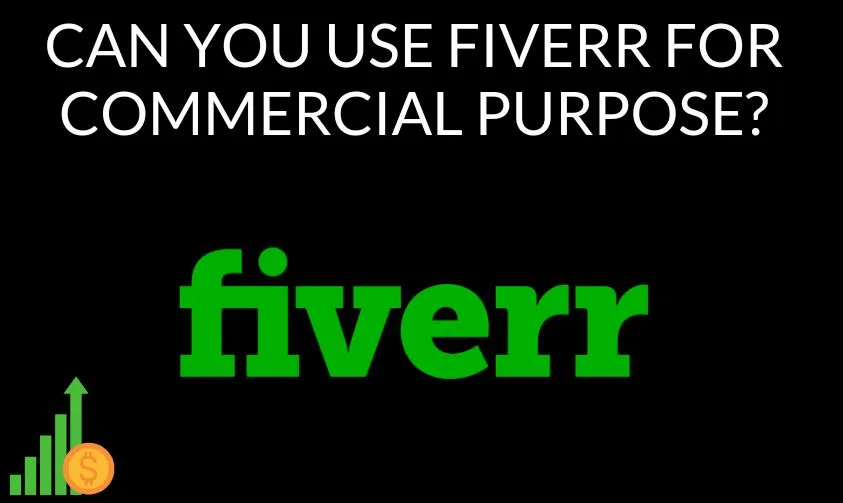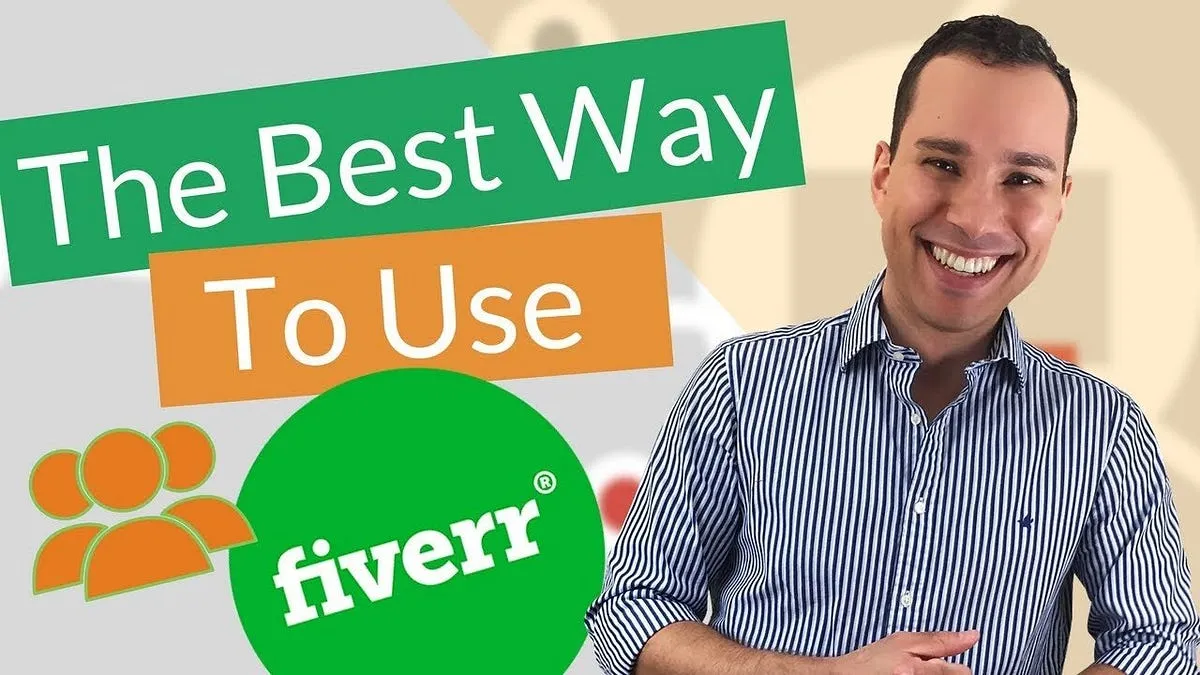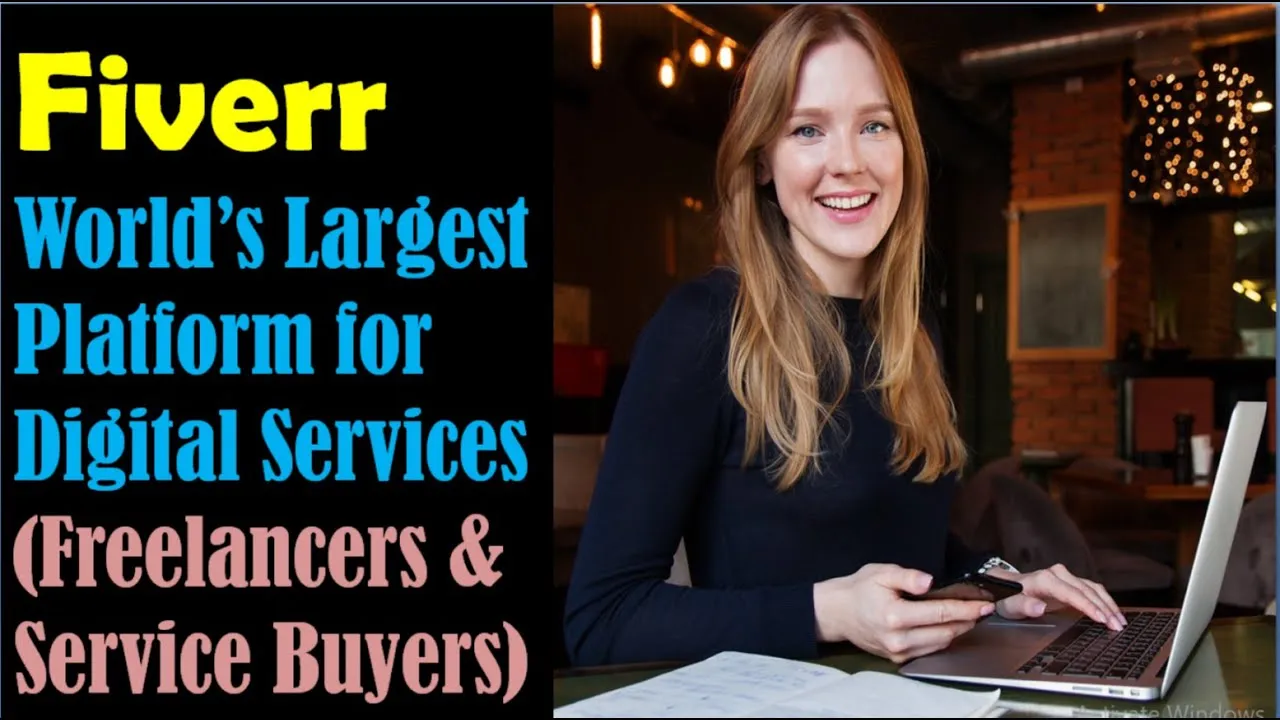If you're dipping your toes into the gig economy or looking to expand your service offerings, Fiverr is a name that pops up quite a bit. So, what’s the deal? Fiverr is an online marketplace that connects freelancers (or "sellers") with clients (or "buyers") looking for a variety of services. Whether you need a catchy logo, a well-crafted article, or even a voice-over for your project, Fiverr has a wide range of offerings at various price points. The platform allows freelancers to list their services as gigs, starting from just $5, which is how the marketplace got its name.
One of the appealing aspects of Fiverr is its user-friendly interface, which makes it easy to browse, compare, and select services, no matter your background. It allows sellers to showcase their skills through profiles filled with samples of their work, customer reviews, and pricing tiers. This way, clients can make informed decisions based on quality and budget.
Understanding Commercial Use

When you’re working on a project and hire someone on Fiverr, the term “commercial use” comes into play quite frequently. But what does it actually mean, and why should you care? Essentially, commercial use refers to any work or material that you intend to use for business purposes, including marketing, product development, or any revenue-generating activity.
Let’s break it down further:
- Investment: You're spending money on a service or product to help grow your business.
- Distribution: The material you receive will be shared or published—think advertising, promotions, or even basic social media posts.
- Intellectual Property Rights: When you buy a gig, you want to know that you can use it legally to make money without any hiccups.
Many gigs on Fiverr come with standard usage rights that might only allow personal use or limited distribution. If you're planning to use the work commercially, you must ensure the seller grants you the appropriate rights. Typically, sellers offer different packages or can customize an agreement to include commercial use rights, often at an additional cost.
In summary, understanding commercial use is crucial for anyone looking to utilize Fiverr services in a business context. Not only does it protect your investment, but it also helps you avoid potential legal complications down the road!
Also Read This: How to Do Data Entry Work on Fiverr
Differences Between Commercial and Personal Use

Understanding the distinction between commercial and personal use on Fiverr is crucial for freelancers and clients alike. This differentiation helps to clarify how the purchased services or products can be utilized. Let's break it down!
Commercial Use: This refers to any use of a service or product that is intended for profit-making activities or business purposes. Here are a few examples:
- Marketing Materials: If you're a business and you hire a designer to create a logo or brochure, you're using that service for commercial purposes.
- Website Development: If a freelancer builds a website for your business, that's also considered commercial use.
- Product Design: Hiring someone to create a product design that you plan to sell comes under the commercial use umbrella.
Personal Use: In contrast, personal use encompasses non-business purposes. It’s generally associated with activities that are not intended for profit-making. Here are some instances:
- Personal Projects: Creating a video for a family event or even a personal blog that isn't monetized falls under this category.
- Gifting: If you commission a piece of art for someone as a gift, that's personal use.
- Hobbies: Utilizing designs or content for a personal hobby or passion project is also personal use.
In short, the main difference lies in the intent behind the use—whether it’s for profit or personal enjoyment!
Also Read This: How to Work as a Freelance Web Developer on Reddit
Fiverr's Licensing Models

Fiverr offers a couple of licensing models designed to clarify how buyers can utilize the services and products they purchase. Let’s take a closer look at these models:
| Licensing Model | Description |
|---|---|
| Commercial License | This license allows you to use the delivered work for commercial purposes. You can incorporate it into products or services you sell. |
| Personal Use License | This license permits you to use the work for personal projects but restricts its use for business or profit-related activities. |
The choice of licensing model depends on your intended use of the work. If you're a freelancer looking to make a living from the services rendered, opting for the commercial license is often the better choice. However, for non-profitable uses, a personal use license might suffice.
It's essential to review Fiverr's licensing terms before making a purchase to ensure you comply with the usage rights and avoid any legal issues down the line. Understanding these models helps to ensure that both parties are clear on how the work can be used!
Also Read This: Does Fiverr Cost Money? Understanding Fiverr’s Pricing Structure
How to Determine If Your Project Requires Commercial Use

Figuring out whether your project needs commercial use rights isn’t as daunting as it sounds! Here are some key factors to consider:
- Purpose of the Project: If you plan to sell, promote, or monetize your project in any way—like incorporating a Fiverr-created design in a product or service—you will likely need commercial use rights.
- Distribution Scale: Think about how far your project will reach. If you're sharing your project on platforms that could generate income or large audiences, you’ll need those rights.
- Client Work: If you're working on behalf of a client who intends to use the project commercially, securing rights is essential to avoid any legal draggles.
When in doubt, it’s better to err on the side of caution. Always review Fiverr’s gig descriptions and terms to confirm whether the seller includes commercial rights in their offering. If you’re unclear, don’t hesitate to ask the seller directly!
Also Read This: How to Edit Your Username in Fiverr
Benefits of Using Commercial Use Rights
When you invest in commercial use rights through Fiverr, you’re not just following the rules; you’re unlocking a treasure chest of benefits that can propel your project into the stratosphere! Check these out:
| Benefit | Description |
|---|---|
| Legal Protection | Owning commercial rights means you can legally use, print, and distribute the work without hassle. |
| Brand Credibility | Using professionally created assets boosts your brand's credibility—impressive work speaks volumes! |
| Greater Flexibility | With commercial rights, you can modify and adapt the work to fit your needs and branding. |
| Increased Revenue Potential | Your projects can be monetized without concern, opening up avenues for profit! |
In short, investing in commercial use rights not only protects you legally but also enhances your financial opportunities. So, why not make the most of it?
Also Read This: Does Fiverr Take Commission? A Comprehensive Guide
7. Common Examples of Commercial Use Projects
When you're delving into the world of Fiverr, it’s helpful to know what type of projects typically fall under the umbrella of commercial use. This understanding can not only shield you from potential copyright issues but also help you make the most of what freelancers have to offer. Here are some common examples:
- Logo Design: Logos are quintessential assets for a business. When you hire a designer to create a logo for your company, you typically gain the right to use that logo commercially.
- Social Media Graphics: From eye-catching posts to banner ads, social media graphics created for your brand are meant for commercial promotion. This includes anything from Facebook posts to Instagram ads.
- Website Content: If you’re hiring someone to write articles, blog posts, or web pages for your site, this content is generally intended for commercial use.
- Video Production: Promotional videos, tutorials, and advertisements created for your business on Fiverr qualify as commercial use. You want to ensure you can use these videos across various platforms.
- Music and Audio: If you're creating a podcast or video content, any music or audio you commission must be cleared for commercial use to avoid copyright disputes.
These examples showcase how you can leverage Fiverr to grow your business. However, always double-check the licensing terms upon purchasing a service to ensure that you have the rights you need.
8. Conclusion: Making the Right Choices on Fiverr
So, what’s the bottom line when it comes to commercial use on Fiverr? It all boils down to understanding your needs and being aware of the rights that come with the services you purchase. Here’s a quick recap of what to keep in mind:
- Read the Fine Print: Always review the terms and conditions associated with each Fiverr gig. Not all services automatically grant commercial rights.
- Communicate Clearly: If you have specific requirements regarding usage rights, don’t hesitate to ask your freelancer. Most are happy to clarify.
- Consider Upgrading: Sometimes, opting for an expanded package or gig can secure the rights you need without hassle.
- Documentation is Key: Keep records of your purchases and agreements to protect your rights in case something goes awry.
By being informed and proactive, you can make the most of Fiverr while ensuring your projects are safe for commercial use. With the right choices, you can harness the power of Fiverr’s diverse talents and watch your business flourish!



